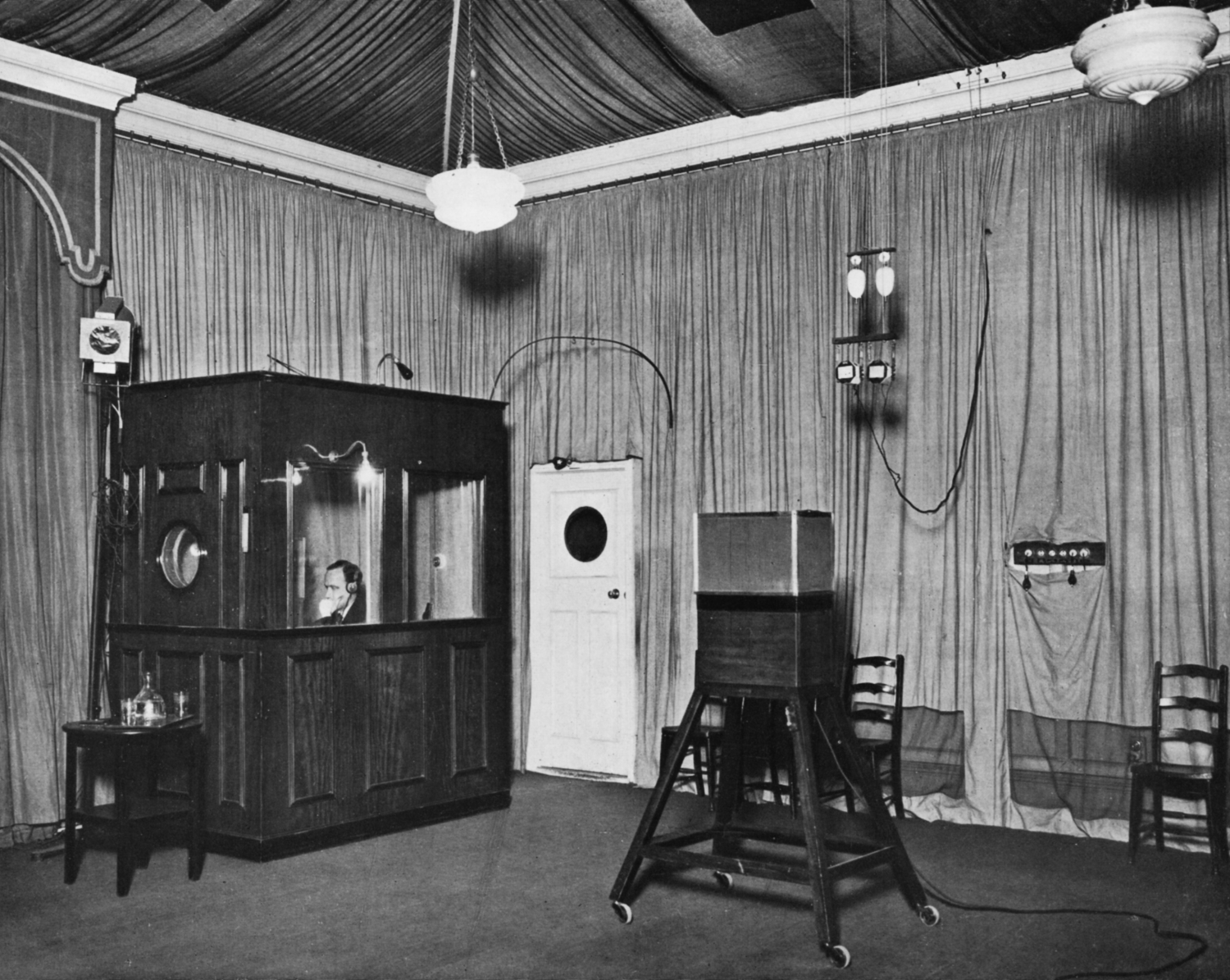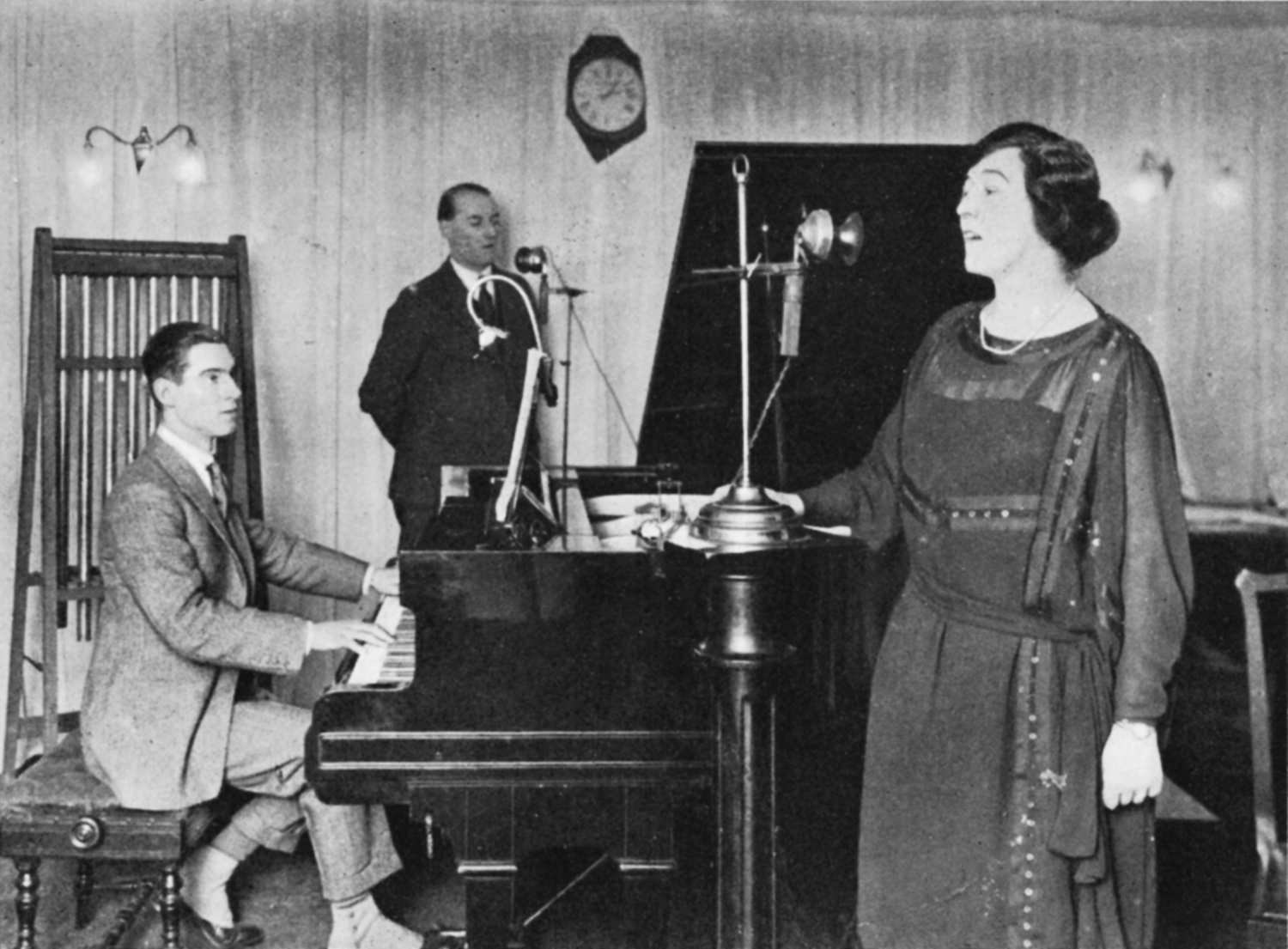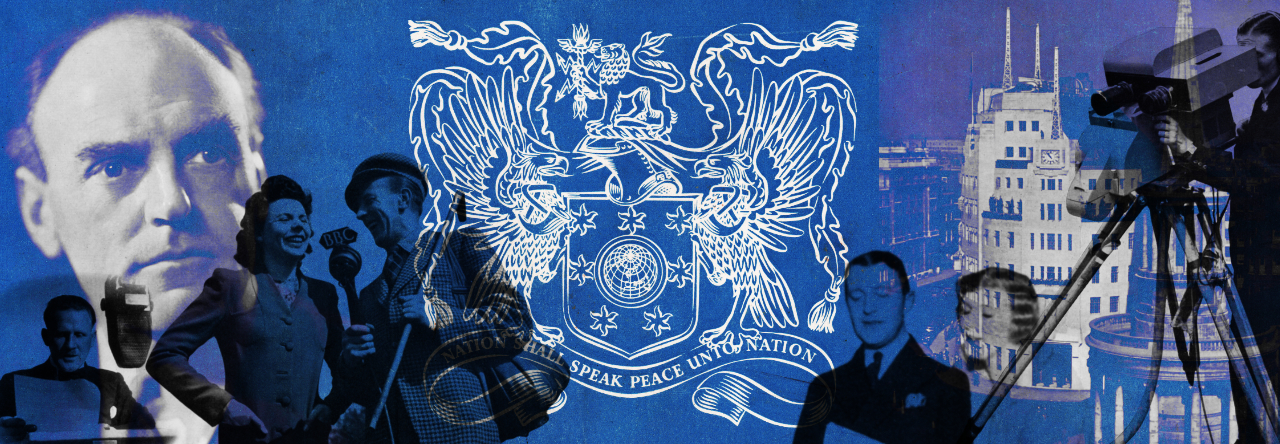Heavily draped studios of early days

Over the walls and ceilings of the early studios curtains were hung in seven layers, like a Victorian woman’s petticoats. Four tons of material were used to reduce reverberation; the artist’s voice sounded thin and rarefied as though he were on a mountain-top. Microphones, at the start, looked like ordinary telephone receivers mounted on columns later were slung in rubber, boxed in and moved about on heavy trolleys.
BEFORE November, 1922, broadcasting in Britain was carried on by industrial concerns in their research departments and by a few scientific amateurs only. To provide a regular service for a growing body of listeners, the Postmaster-General granted a licence to radio manufacturers to form the British Broadcasting Company, of which Mr J. C. W. Reith was managing director. Programmes began in the evening of 14 November from London (2LO) and next day from Birmingham (5IT), and Manchester (2ZY). Stations in Newcastle, Cardiff, Glasgow, Aberdeen, and Bournemouth were opened within a year. Each used a power of 1½ kilowatts, and could be heard, on crystal set with headphones, at a range of twenty miles. The eight bands of pioneers worked hours without limit, in conditions of severest discomfort. Nevertheless, in a few months, 4½ hours of programmes were transmitted daily without fail to some tens of thousands of listeners. In December, 1922, the News Bulletins were read in London and broadcast simultaneously, by means of connecting land-lines, from all stations. Orchestras were assembled at each station, so far as studio space permitted. Schubert’s ‘Unfinished’ Symphony was given from London in December, 1922, by seven players! The title of the second talk from 2LO was, somewhat unexpectedly, ‘How to catch a Tiger’. From Covent Garden, in January, 1923, came the first outside broadcast of opera. Plays were put on, though sound effects at first baffled producers. John Henry became the first successful wireless comedian. Relay stations were opened in 1924; next year Daventry (5XX) reached out to the further parts of Britain, carrying an alternative programme, including weather forecasts and gale warnings. When the first BBC gave way in 1926, without change of initials, high sense of service, or guiding spirit, it had won the goodwill of more than two million families.

The picture is of the very earliest days at Marconi House, showing a duet sung by Olive Sturgess and John Huntingdon into separate microphones; that above shows part of the bigger studio at Savoy Hill with soundproof listening cubicle in the corner, and the inevitable carafe of water for libations before the microphone.

